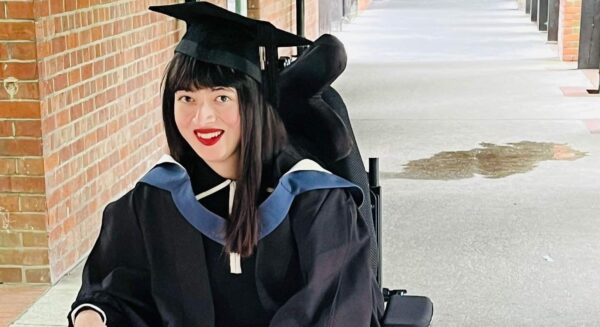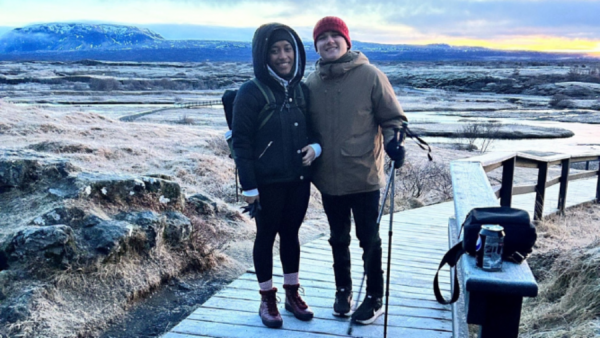Katrina recently started her first job as a qualified vet after graduating from veterinary school last year. She looks back on the challenges of completing such a physically demanding degree with Bethlem myopathy, the compromises she has had to make in her profession, and her future career goals.
‘I’ve achieved my dream of becoming a vet despite having Bethlem myopathy”
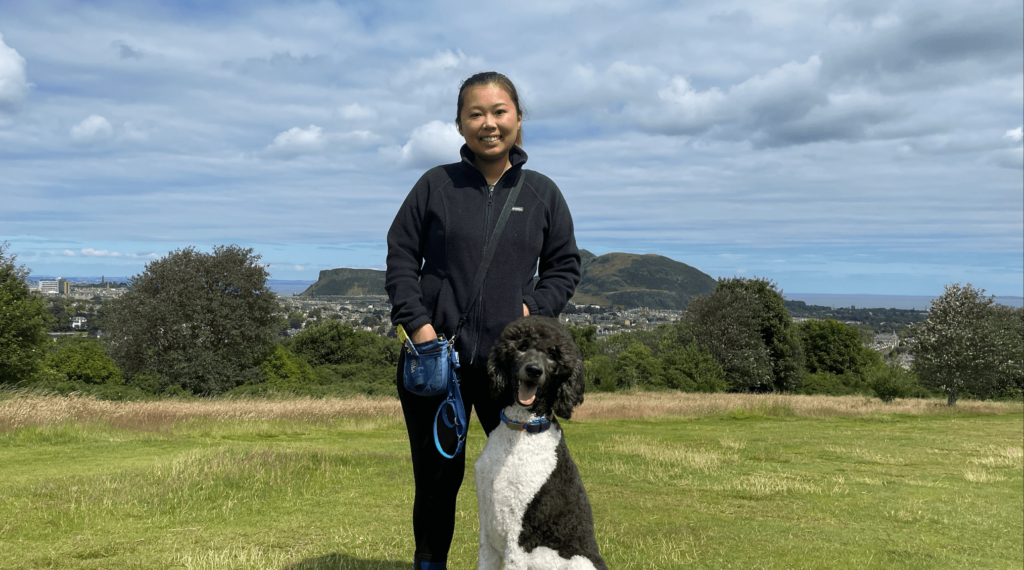
I moved across the world from Shanghai to Edinburgh to attend university just six months after being diagnosed with Bethlem myopathy. The five year degree was difficult to say the least, a lot of the time due to other’s misconceptions that I wouldn’t be able to do the physical side of things. But I proved everyone wrong, and I’m now a qualified vet working in Stirling.
Utilising the support available
I was experiencing physical limitations years before I received my diagnosis, such as walking with a limp, struggling to get up off chairs and being unable to squat. So getting diagnosed before university was helpful as I was able to sign up to disability support services that I wouldn’t have had access to otherwise.
Having been originally allocated a flat on the third floor, I was able to get ground floor accommodation instead. The vet school campus was five miles away from my halls and walking to the bus everyday would have meant I’d be exhausted by the time I got to lectures. The university’s disability services paid for me to get a taxi to and from the campus which helped a lot.
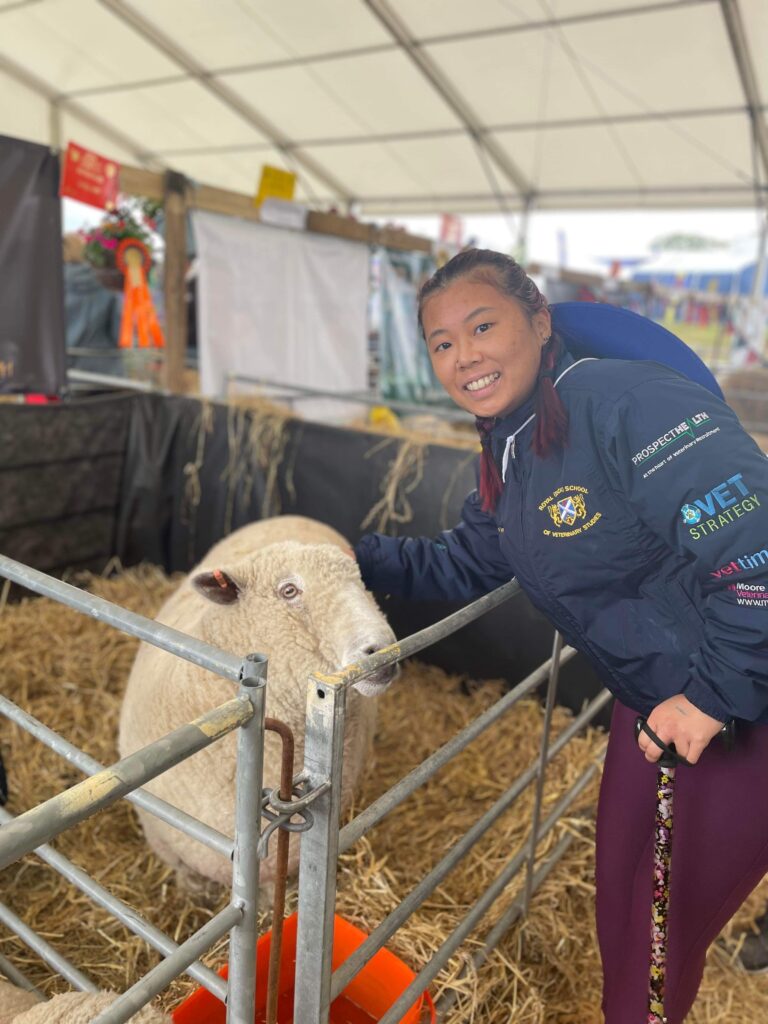
Challenging people’s assumptions
It was difficult to get the university and Royal College of Veterinary Surgeons to believe I should be on the course. I got pulled into a meeting with several people from the vet school who said they didn’t think I would qualify as they assumed I couldn’t work with larger farm animals, which is a requirement of the course. It was so disheartening to listen to this as being a vet has always been my dream and I moved across the world to pursue it! I knew what I was capable of and assured them I could do what was needed, even if I had to do it a little differently.
You have to find 12 weeks of placement in the summer holidays for the first two years of the degree, one of which was lambing. We completed placements in pairs, so my friend and I got into a good routine pretty quickly. She would catch the sheep and put them in a small pen. I would then sit down in the straw (which was nice and comfy) to do what I needed to do. The university staff changed their tune after I completed my two weeks of lambing and were more supportive in allowing some adjustments across the course.
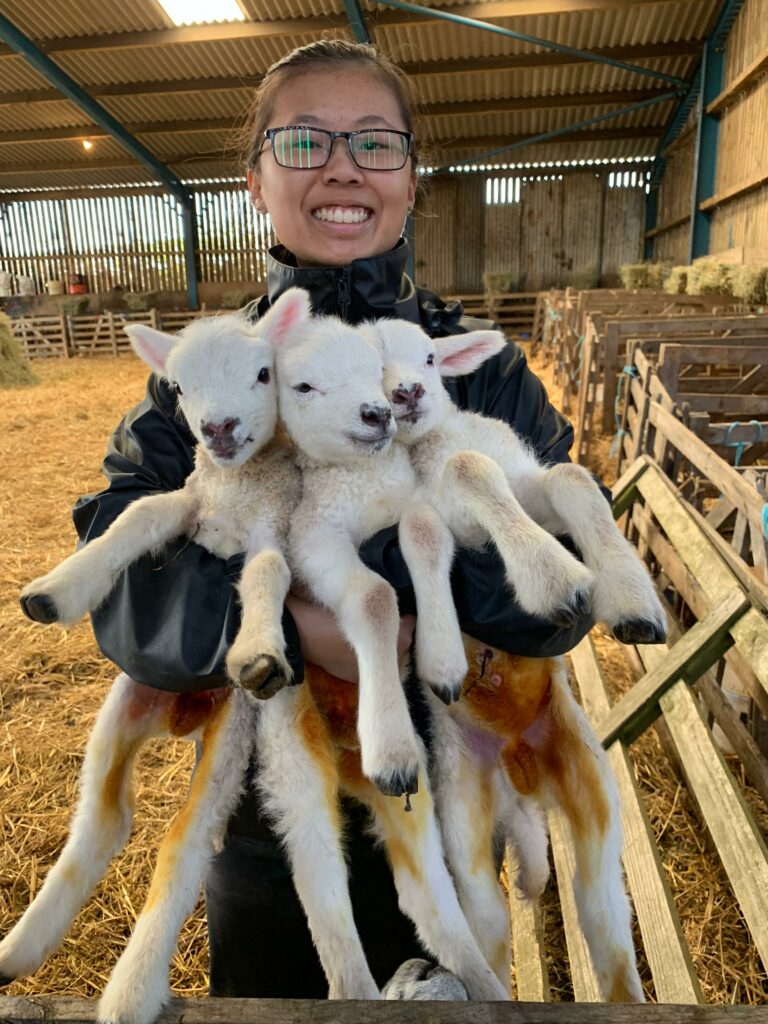
Finding placements presented its own challenges as people were sceptical about whether I’d be a helpful addition to their team when I disclosed my disability. I had to be persistent in telling them I was confident I could be of value. Most of the time they would keep an eye on me for the first couple of days to check I was pulling my weight, but they warmed up to me after I’d proven my worth.
Balancing vet life and social life
It’s a good thing I’m not a big night clubber as I get very fatigued from my condition, and doing such a physically intensive degree did take it out of me. I think I went clubbing once at uni, almost collapsed at the end of the night, and had to spend several days recovering. It just wasn’t worth it.
I have great friends from uni though who I’m still in contact with. My accommodation had a big living room so I often hosted get togethers at mine. I had a Nintendo Switch, would always have food in the house and we’d have a great time. They understood that if I got too tired, I would just excuse myself and let them carry on.
Learning to accept my abilities
I graduated at the end of 2023 which was a bittersweet moment. I am a qualified vet which is my dream, but I’m not able to go into the speciality I had hoped. I always wanted to work with farm animals, but I can feel my condition has gotten worse in the last six years. I get tired more easily and my body is getting weaker, so being a farm vet just isn’t realistic anymore.
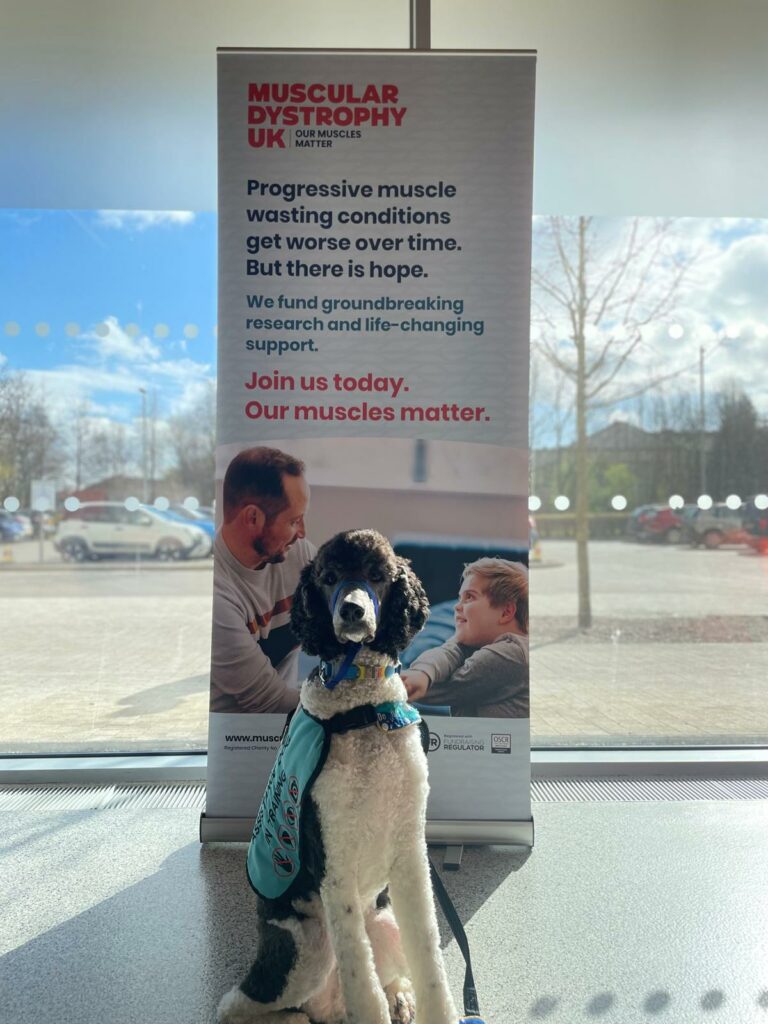
I did my dissertation on salmon farming and found I had a real interest in the field. In the future I’m hoping to pursue that career as it’s still farming but a little different. I started my first job last month as a small animal vet, which is a real achievement. At the moment I’m working part time with the hope of building up to full time. The practice I’m working at is very flexible and accommodating which takes a lot of weight off my shoulders.
Alongside this, I spend a lot of my time training my assistance dog, Knox. It’s pretty physical and tiring work sometimes, but I really enjoy it and he’ll be a huge help to me when he qualifies at the end of the year.
